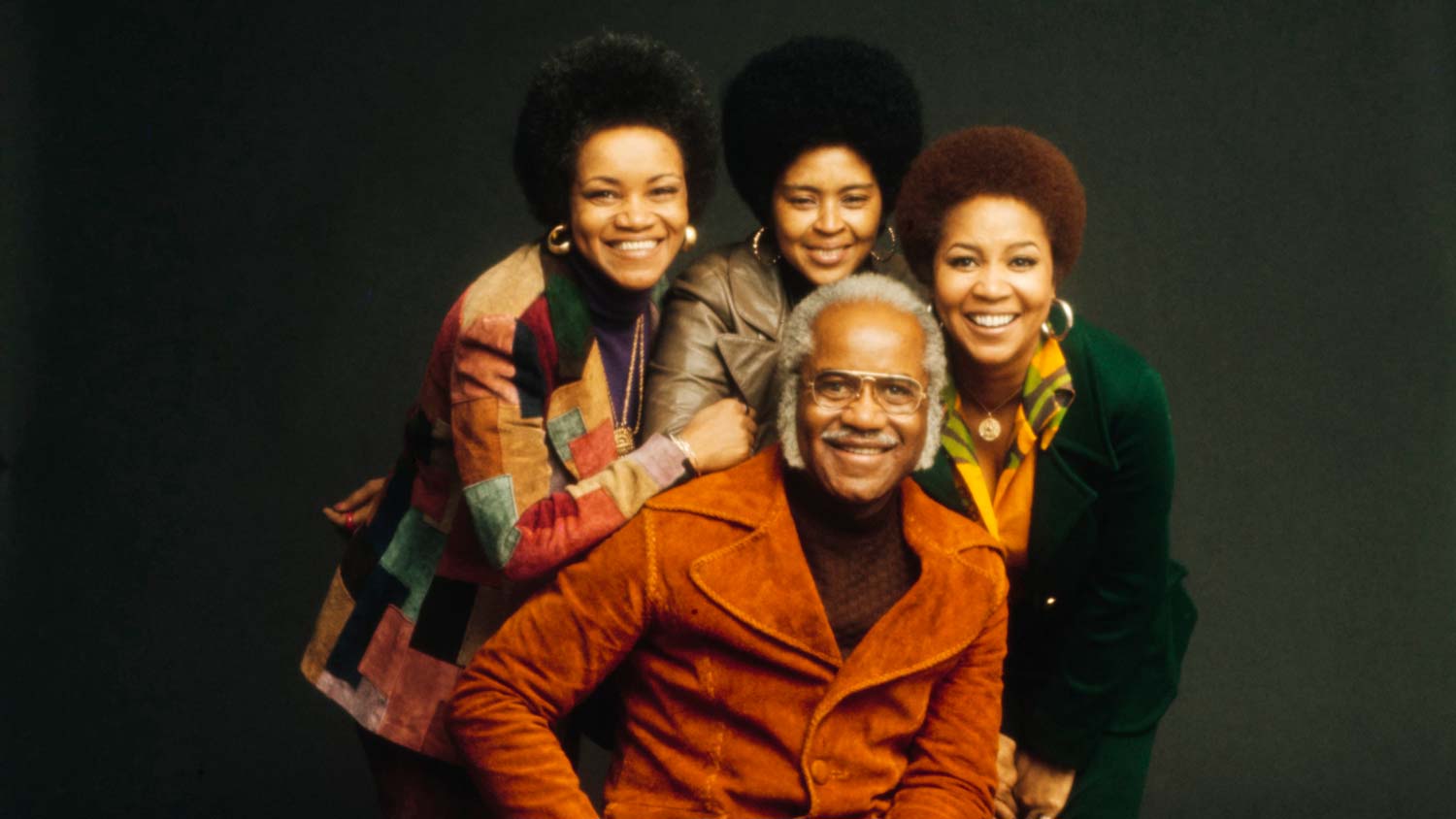An interviewer once asked Roebuck “Pops” Staples, leader of the world-famous Staple Singers, if they were originally from Chicago.
“Well,” Pop explained, “Cleo is originally from Mississippi, but I’m from Maine.”
The reporter seemed a bit puzzled.
“You didn’t know that, did you?” Pops added in his syrupy country drawl.
“No, I didn’t,” the perplexed writer answered.
“Yep. I’m from Maine-the main part of Mississippi,” Pops said as he burst into laughter.
Staples and his three singing daughters – Mavis, Yvonne, and Cleo-have come a long way from the main part of Mississippi. From their gospel beginnings through the folk-rock era to their soul music peak, the Staple Singers have traveled a long, artistically-rich road into the mainstream of American music.
Roebuck Staples was born in 1915 in Winona, Mississippi, where he grew up with hard times and the blues, his singing and guitar style influenced by country bluesmen Barbecue Bob and Big Bill Broonzy. But Roebuck found the Lord and joined a jubilee quartet called the Golden Trumpets.
Roebuck, his wife Oceola, and their two children, Cleotha and Pervis, moved north to Chicago in 1936, where Yvonne and Mavis were born a few years later. Singing in a Southern quartet style usually performed by all-male, adult groups, the Staple Singers began appear-ing at local churches in 1948. Mavis, then age seven, handled the bass parts.
By 1954, Pops, Mavis, Cleo, and Pervis (Yvonne replaced him many years later) landed a contract with Chicago’s United label, cutting a num-ber called “Sit Down Servant.” Pop’s thin, winsome tenor shared the lead with Mavis’s deep, throaty tones, as they have done ever since, although her unique contralto had not developed the emotional edge it was soon to have. The record failed to catch on, though, per-haps because Pops’ reverberating down-home guitar, which would become an-other trademark of their style, was overshadowed by a rinky-tink piano.
The Staple sound did click in a big way when their haunting 1957 Vee-Jay recording of “Uncloudy Day” became a nationwide gospel hit. Others followed, including “Will the Circle Be Unbroken,” “Help Me, Jesus,” and “Swing Down Chariot (Let Me Ride”), established the Staples as one of America’s top gospel attractions.
They were signed to Bill Grauer and Orrin Keepnews’s Riverside jazz labelin 1962 when the folk music boom was in full force. The group was beginning to pick up college bookings, in addition to their religious dates. While at Riverside, they were the first black artists to re-cord material by Bob Dylan.
Their following continued to expand when they moved to the Epic label, where they became identified with so-cial protest songs like “Freedom High-way” and “Why? (Am I Treated So Bad),” both penned by Pops, and Ste-phen Stills’s “For What It’s Worth.” (The latter two were produced by rock and roll legend Larry Williams.)
When the Staples joined Stax in 1968, they were working alongside major rock acts at places like the Fillmore West and East. The first two Stax albums, produced by Steve Cropper, continued in the folk vein, but their third, The Staple Swingers, offered a bold new direction of hip soul “mes-sage” songs. It was produced in Muscle Shoals, Alabama, by Al Bell, as was their next, Be Altitude: Respect Your-self. Be Altitude broke the Staple Singers wide open. “Respect Yourself,” written by Mack Rice and Luther Ingram, reached the Number Two position on Billboard’s soul chart, while Al Bell’s “I’ll Take You There,” with its infec-tious reggae-like beat, hit Number One soul and pop.
There were more hits at Stax-“Oh La De Da,” “If You’re Ready (Come Go with Me),” and “Touch a Hand, Make a Friend”-before they moved on to Warner Bros., where they scored with Curtis Mayfield’s soundtrack to Let’s Do It Again. Changing their name to “The Staples” and adopting a more secular image, the group cut albums produced by fellow Chicagoans Curtis Mayfield and Eugene Record.
Pops Staples died December 19, 2000.


